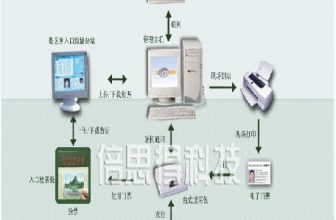
RFID brings benefits to Ohio Music Festival
[ad_1]
The Six Fest Music Festival was held at the Athens campus in Ohio this spring. If there are no tickets with embedded RFID tags, the audience will be waiting for admission in the storm. With RFID technology, the audience does not even need to take the tickets out of their bags or pockets to enter the venue. The system allowed nearly 14,000 ticket holders to enter the venue in an orderly manner, avoiding the appearance of fake tickets. This feature alone has recovered the cost of adopting this technology. In fact, by reducing the occurrence of fake tickets and the repeated use of real tickets, the organizers saved nearly 10,000 yuan. The system cost 12,000, but by avoiding fraud, the company saved at least 22,000 yuan.
Since 2004, the annual concert has become a major local event, similar to the small-scale Woodstock Music Festival. There are many bands performing outdoor performances at the concert, from 11 am until evening. Teenagers and college students are the main audience at the festival, and they usually buy 15 yuan or 25 yuan tickets at the door. But in previous years, concerts lost thousands of dollars due to fake tickets. In fact, 10 to 12% of the tickets were fake. For example, some listeners with real tickets will enter the scene first, get many real tickets from friends, and then take them out of the venue to other people waiting outside, so that they can enter the venue without buying tickets. In order to avoid such a situation, the organizer of the concert employs a large number of staff, most of whom are college students, who will check the tickets more carefully to avoid theft. But this was a waste of time, and it was not very effective.
This year, each ticket contains a passive ultra-high frequency (UHF) RFID tag, and each tag has a unique ID number. There is a reader at the entrance to read the label to ensure that the ticket is genuine and has not been checked. The above-mentioned tags are provided by InstaTrax, a local company that provides technical solutions for RFID, data management and e-commerce.
The RFID tag is glued to the back of the ticket in the form of a sticker. InstaTrax uses an X-1030 double dipole RFID tag. The reason why the 2*2 inch EPC Class 0 tag is used instead of the EPC Gen 2 tag is because its size is more suitable for sticking to On the ticket. In order to ensure that all tags can be read by two RFID gates installed on metal gates before use, the company conducted internal tests on the tags. The results show that when the tag is put in a bag or pocket, its reading range can reach more than 7 feet.
Each gate consists of a Motorola AR400 reader and two antennas, which are designed to read the ticket holder’s tag within a range of up to 3 feet. The reader can be connected to a laptop equipped with InstaTrax software by connecting to a Linksys router. The software decodes the ID code read by the reader to confirm whether the reading is valid. If the reader reads a non-Class 0 tag signal or reads nothing, the software will show a red light on the display to indicate that the person does not have a valid ticket. If the ticket is read normally, the green light will be on. Among the 14,000 tickets sold, only 6-7 were not correctly read due to damage to the tickets. Finally, manual inspection was performed to verify their validity.
What the organizers and InstaTrax didn’t expect was that the rainstorm on the day of the music festival soaked the performance venue. Although the reader and the computer were under the canvas tent, due to the heavy rain and the equipment was on the edge of the tent, the hardware was once wet. What’s more, the reader antenna and door are exposed to rain. As the rain continued, in order to keep it dry, the staff moved the readers and computers to a further place inside the tent. Even though the reader was already very wet at that time, most of the tickets could still be read correctly. In most cases, spectators who have just passed the security check will take out their tickets from their bags to pass through the entrance. After being told that “you don’t need to find them, just walk straight away”, even though they don’t have the tickets in their hands, their tickets still pass the check.
Before the concert, the organizer deliberately revealed that the tickets are embedded with RFID. Through this move, such as publishing instructions on RFID tags on its event website, it may prevent some forged tickets. In the future, the organizer plans to store the ID codes of all tickets in the database so that no one will try to use different RFID tags to forge tickets.
[ad_2]




